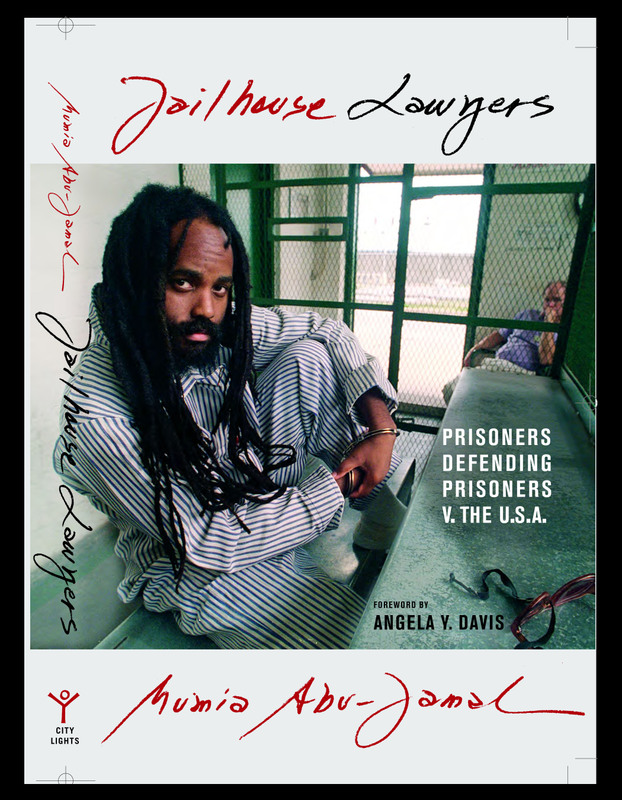
Jailhouse Lawyers: Prisoners Defending Prisoners v. the U.S.A.

Jailhouse
Lawyers: Prisoners Defending Prisoners v. the U.S.A.
Mumia
Abu-Jamal
City Lights Books, 2009.
Many prison activists focus their ire on the 13th Amendment, which proclaims slavery to be legal for the convicted felon. While we support economic struggles of u.$. prisoners, we do not see this law as deserving particular focus in the struggle to end the injustice system. A law that might better be a strategic focus for anti-imperialists and other progressive forces is the Prisoner Litigation Reform Act (PLRA), passed much more recently, in 1996, by then-President Bill Clinton.
The PLRA has significantly hampered the ability of prisoners to combat the injustices they face on a daily basis, effectively delegating them as second class citizens in the eyes of the courts. In what he says is the first book on the subject, Mumia Abu Jamal’s Jailhouse Lawyers: Prisoners Defending Prisoners v. the U.S.A. accurately places the PLRA in historical context as modern day Black Codes, keeping the oppressed in their place.
This week, a spokesman for the California Department of Corrections and Rehabilitation went so far as to cite the PLRA in claiming that federal orders to decrease the prison population by 40,000 people in California to relieve the current tortuous conditions are illegal.
Class action suits for humyn rights were an integral part of the prison movement of the 1960s and ’70s. The PLRA has greatly changed the context for such struggle.
Mumia reinforces how much the state fears legal struggle by citing an interesting study that showed jailhouse lawyers to be the most punished population in u.$. prisons; followed by Blacks, the mentally ill, gang members and political prisoners (in that order). Though we often stress the repression of oppressed nations, politically active and other organized prisoners, we have seen over and over people being punished for filing complaints and lawsuits against their abusers. The Illinois Supermax, Tamms, brags of holding the most litigious prisoners in the state.
Mumia opens Jailhouse Lawyers with a story that paints the clear picture that there are no rights, only power struggles. While being interviewed by Mumia, Delbert Africa describes prisoners spending all their time reading law books, fighting their own cases, and then going literally crazy when they lose. Why? “They go crazy becuz, Mu, they really believe in the System, and this System always betray those that believe in it! That’s what drive them out they minds, they cain’t handle that.”
Mumia minces no words, and is clear that getting a fair hearing by the imperialist system is a joke, particularly for the oppressed nations. For the most part he condemns street lawyers for their failure to effectively defend prisoners and soon-to-be prisoners.
In the conclusion, Mumia points out that jailhouse lawyers can also help prop up the system by providing the illusion of justice to the outside and as a pressure release for those on the inside. As a result, things like the PLRA, and rules forbidding prisoners to help each other serve to heighten the contradiction between the oppressed and the state within the u.$. prison system.
He goes on to quote former political prisoner Ed Mead about the need for organizing to go beyond the very limited scope of legal work. That is why MIM(Prisons) is working to build legal campaigns and a new Serve the People program run by jailhouse lawyers within the context of our greater organizing work. In fact, the right to organize in itself is a legal battle that our movement has been and will continue to be heavily involved in. As Mead says, “It used to be against the law for workers to combine, to organize, to unionize, and workers just went ahead and did it. And that’s how they won their rights. And that’s the same with prisoners.”
Overall, Jailhouse Lawyers is well-researched and an easy read, exemplifying Mumia’s journalistic skills. MIM(Prisons) recommends this book, particularly for the analysis of the law provided by Mumia with thorough historical examples. Such an analysis is crucial for anyone who wants to effectively battle the injustice system on its terms.








